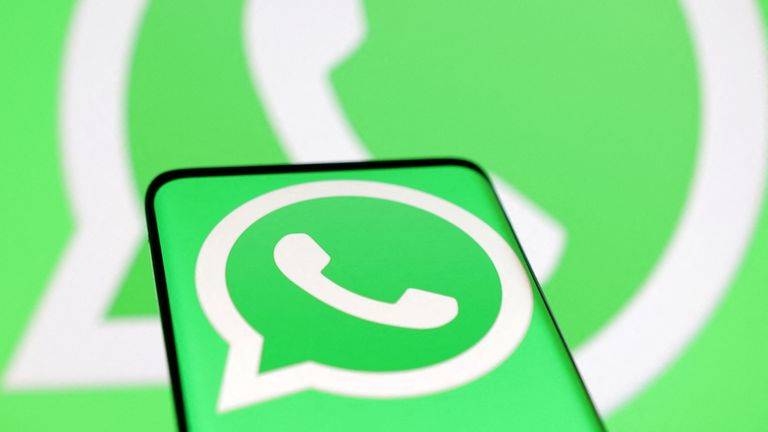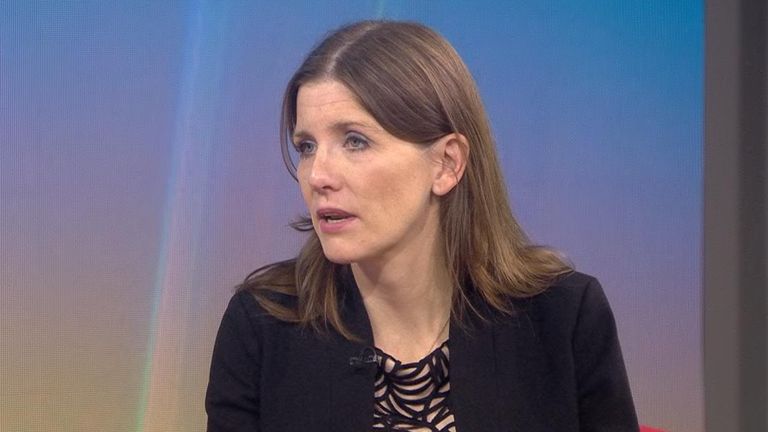Apple has launched a fierce attack on a government proposal that would force tech companies to approve new privacy features to the Home Office.
this iphone The manufacturer said changes to the Investigative Powers Act, which are under negotiation, would pose a “serious and immediate threat” to the security of user data.
In a nine-page submission, apple said it would rather withdraw key privacy measures from its services in the UK than comply with the plans.
But what exactly does this law do, what is being proposed now, and is Apple right to be so opposed to it?
The Snooper’s Charter
The Investigative Powers Act came into force in 2016, Critics call it the “Snooper’s Charter”.
It includes allowing security agencies and police to intercept suspicious communications, and allowing the Home Office to compel communications providers to delete communications or encryption of data.
Encryption protects messages from being seen by anyone outside the conversation.It is used in popular messaging apps such as WhatsApp and signal.
Proponents say it protects users from surveillance, theft and fraud; critics say it helps criminals thrive.
The government argues that the bill will keep the UK safe from hostile threats and crack down on illegal activity.
A statement this week said the amendments would help keep the law relevant as technology evolves and “protect the public from criminals, child sex abusers and terrorists”.
read more:
WhatsApp adds locked chat feature for ‘intimate conversations’
What changes?
Apple opposed the original bill and was particularly unhappy with three proposed changes.
One of the measures will force companies to give the Home Office advance notice of new safety features they want to add. Those not approved will need to be disabled immediately.
Another suggestion is to expand the Home Office’s powers to force non-UK companies to comply with changes it wants them to make to security functions.
Apple said this would give the UK “authority that no other country has” and stifle innovation.
The Home Office insisted the bill included “robust independent oversight” to regulate how the surveillance powers it gives public authorities are used. Sky News previously revealed that the government For example, the act was never used to order WhatsApp owner Meta to give authorities access to encrypted messages.
Apple says the changes weaken some of those protections and give users more immediate power home secretary.
Dr Nathalie Moreno, data protection partner at Addleshaw Goddard, told Sky News they “do not appear to be bound by the clear conditions or guardrails that normally enact such reforms”.
read more:
Suella Braverman says terror threat ‘rising’
Fears spike in online child abuse over summer
Why is Apple so against it?
Apple has always strongly opposed authorities accessing user data, even in extreme cases.
After the 2015 mass shooting in San Bernardino, California, the company Sue the FBI in court Stop it from hacking into the iPhone used by the killer.
The company has since made privacy an important part of its brand, even backtracking on its own. Plan to scan people’s iCloud content for child sexual abuse material after Backlash from customers and security experts.
Robin Wilton, director of the Internet Society, said Apple’s latest intervention was well timed to have the greatest impact.
it’s coming in a day Online Safety ActThe government’s flagship internet safety legislation, which could force companies to scan messages for abusive content, has passed the House of Lords.
Mr Wilton told Sky News: “It’s not just being driven by the proposed amendments to the bill, but also their perception of the general policy direction of the UK government.”
read more:
Cybersecurity bill ‘letting girls down’
Will Apple’s involvement make a difference?
Matthew Hodgson, boss of Element, a British communications platform whose clients include the Ministry of Defence, hopes that the involvement of such a major company will stop the proposals.
Hodgson said it was “not a bluff” when companies threatened to withdraw services from the UK because of the government’s stance on encryption. WhatsApp and Signal claim to be quitting If the Online Safety Act forces them to have emails scanned.
He told Sky News these “back doors” could also provide opportunities for bad actors to break in.
“I’m glad Apple is taking a strong stance — the idea of having to seek government permission to add or change encryption on a product is scary,” he said.
“This strategy will only diminish our ability to provide secure communications, because customers will not trust us if they believe that policy decisions must go through the government.”
The consultations are expected to last eight weeks.
A spokesman for the Home Office said: “We continually review all legislation to ensure it is as strong as possible and this consultation is part of that process – no decisions have yet been taken.”
Meanwhile, the Online Safety Bill will be debated by MPs after the summer break. Its backers include children’s charities, who have described the private messaging as a “front line” for child sexual abuse.


